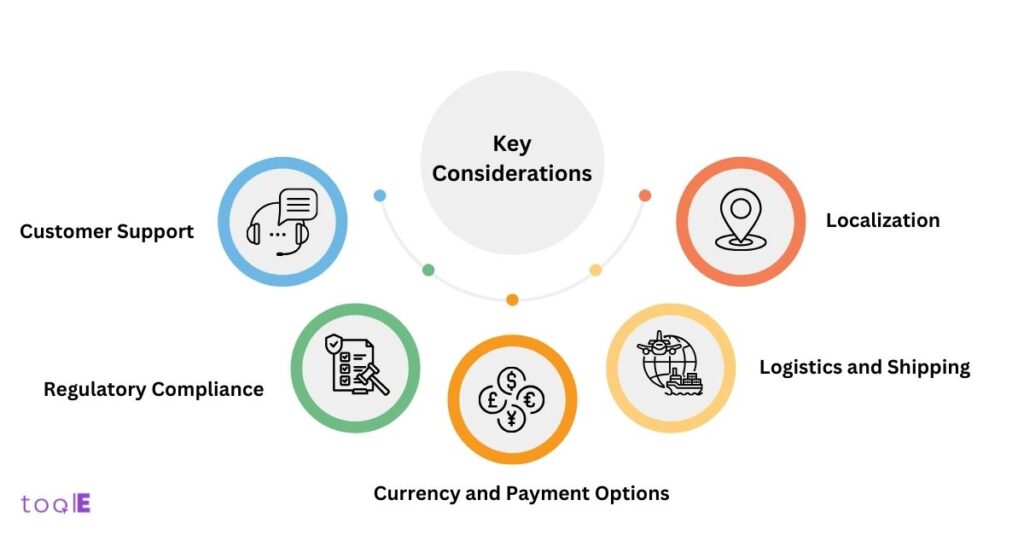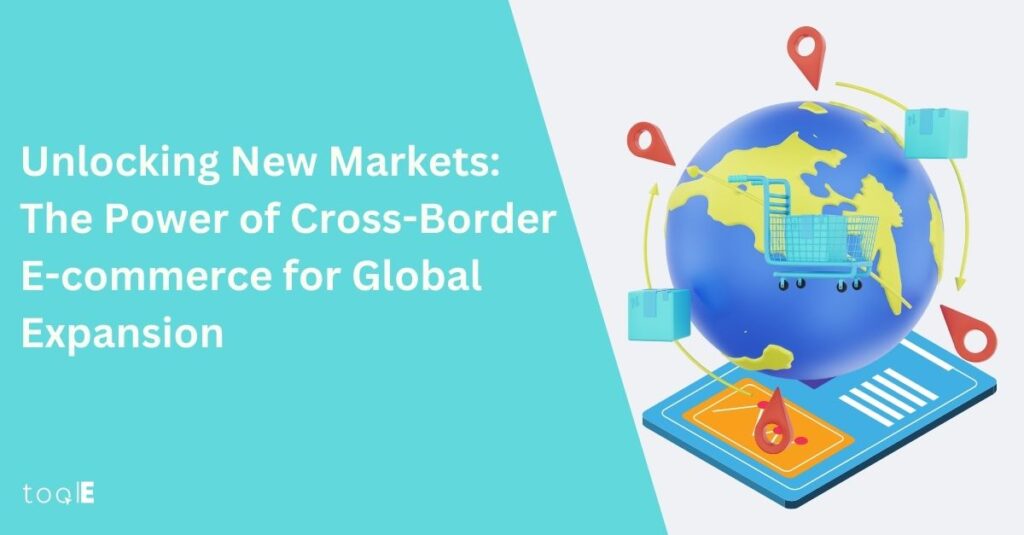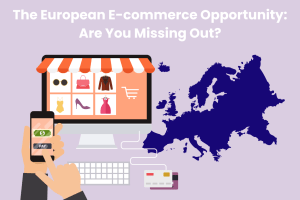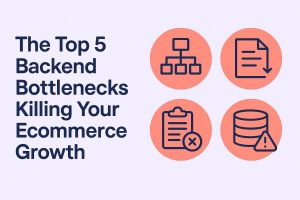In today’s fast-paced, interconnected world, e-commerce is no longer limited to domestic markets. Businesses are now looking beyond borders, recognizing the vast potential of expanding their operations globally. This strategy—cross-border e-commerce—offers a unique opportunity to tap into new revenue streams, build brand recognition on a global scale, and stay competitive in an ever-evolving market. However, entering international markets requires careful planning, research, and the right tools to streamline the process. In this blog, we’ll explore how cross-border e-commerce works, the benefits it offers, and strategies to successfully expand your e-commerce business globally.
What is Cross-Border E-commerce?
Cross-border e-commerce refers to the sale of products or services to customers in a different country from where the business is based. This business model has gained significant traction due to the increasing globalization of the internet, which has enabled companies to reach consumers in different corners of the world without the need for physical stores. With just a few clicks, consumers can buy from any country, while businesses can offer their products to an international audience.
For e-commerce businesses, the barriers that once made international trade complex—such as language, currency, taxes, and logistics—have been considerably reduced with modern technological solutions. Cross-border e-commerce is now more accessible than ever, allowing small and medium-sized enterprises (SMEs) to scale their operations globally and thrive in new markets.
Why Expand Globally?
The potential benefits of cross-border e-commerce are substantial. Here are a few reasons why expanding internationally is a smart move for your business:
- Access to a Larger Customer Base The global e-commerce market is growing rapidly, and reaching customers outside of your home country can help you tap into a vast pool of potential buyers. With billions of people shopping online, the ability to access these markets can significantly increase your revenue.
- Diversification of Revenue Streams By expanding into international markets, you diversify your business’s income sources. This can help you weather fluctuations in your home market and reduce the risk of relying too heavily on one customer base. If one market faces economic downturns or challenges, you have other markets to fall back on.
- Increased Brand Recognition Operating on a global scale allows your business to build brand awareness internationally. As your reputation grows in foreign markets, so does the potential for long-term success. By aligning your brand with international customers, you increase your chances of becoming a household name across various regions.
- Taking Advantage of Global Trends Certain products or services may have a higher demand in specific countries, offering an opportunity for businesses to meet these needs. For example, certain tech gadgets, fashion items, or beauty products might be popular in one country but not readily available. Tapping into these trends can position your brand as a leader in emerging markets.

Key Considerations When Expanding Your E-commerce Business Globally
While cross-border e-commerce offers immense opportunities, there are several factors to consider before you take the leap into new markets. A successful global expansion involves more than simply listing your products on an international marketplace. You need to prepare and implement strategies for the following:
- Localization is more than just translating content into another language; it involves adapting your offerings to meet the cultural, economic, and legal requirements of a particular market. This can include changing your website design, product descriptions, payment methods, and marketing strategies to resonate with local preferences and expectations. Make sure to research the country’s cultural nuances to avoid misunderstandings and enhance customer experience.
- Logistics and Shipping Efficient and cost-effective logistics are critical for cross-border e-commerce. You need to determine the most effective ways to ship products internationally, ensuring timely deliveries while keeping costs manageable. Choosing the right international shipping partners, offering local warehousing, and considering duties and taxes are crucial elements in this process.
- Currency and Payment Options Offering localized payment methods and currencies is essential for making cross-border transactions easy for your customers. From PayPal to credit cards and region-specific payment solutions like Alipay or Klarna, ensuring your e-commerce platform supports the payment options preferred in each market is crucial. Additionally, being able to price your products in the local currency helps customers feel more confident in their purchases.
- Regulatory Compliance Each country has its own set of rules and regulations for e-commerce businesses, including consumer protection laws, import/export regulations, and product standards. Understanding these laws and complying with them is vital to avoiding legal issues. Make sure to research the legal landscape of each country you’re expanding into to ensure you’re following all necessary regulations, including those related to data privacy (e.g., GDPR in the EU).
- Customer Support Offering exceptional customer service is essential to building trust and retaining customers, especially when dealing with cross-border transactions. Consider providing multilingual support, or at the very least, ensure your customer service team is capable of handling international inquiries. Offering clear returns and exchanges policies will also help to establish credibility in new markets.
Tools and Platforms to Enable Global Expansion
Several tools and platforms can make expanding your e-commerce business globally easier and more efficient. By leveraging these tools, you can streamline the process, reduce manual effort, and ensure a seamless customer experience.
- E-commerce Platforms with Global Reach Platforms like Shopify, BigCommerce, and WooCommerce offer built-in features for handling international sales, including multi-currency support, integration with global payment gateways, and the ability to set up localized websites. These platforms make it easier to manage cross-border sales without the need for complex technical setups.
- Global Shipping and Logistics Partners Companies such as DHL, UPS, and FedEx offer international shipping solutions tailored to e-commerce businesses. Additionally, partnering with local couriers in specific regions can provide faster, more cost-effective shipping options for your customers.
- Cross-Border Payment Solutions Payment gateways such as PayPal, Stripe, and Adyen support multiple currencies and international payment methods, allowing businesses to easily process payments from around the world.
- Translation and Localization Tools Services like Weglot and Lokalise can help automate the translation of your website, making it easier to adapt your content to different languages and cultures.
Conclusion: A Bright Future for Cross-Border E-commerce
Expanding your e-commerce business globally through cross-border sales is an exciting and lucrative opportunity. By accessing new markets, diversifying revenue streams, and increasing brand recognition, you position your business for long-term success. However, careful planning is crucial—localizing your operations, choosing the right logistics partners, understanding regulatory requirements, and optimizing your customer service are all key elements for a smooth transition into international markets.
By leveraging the right e-commerce platforms, tools, and strategies, your business can successfully unlock the potential of cross-border e-commerce, entering global markets and thriving in a digital-first world. The future is global, and the opportunity is now.





